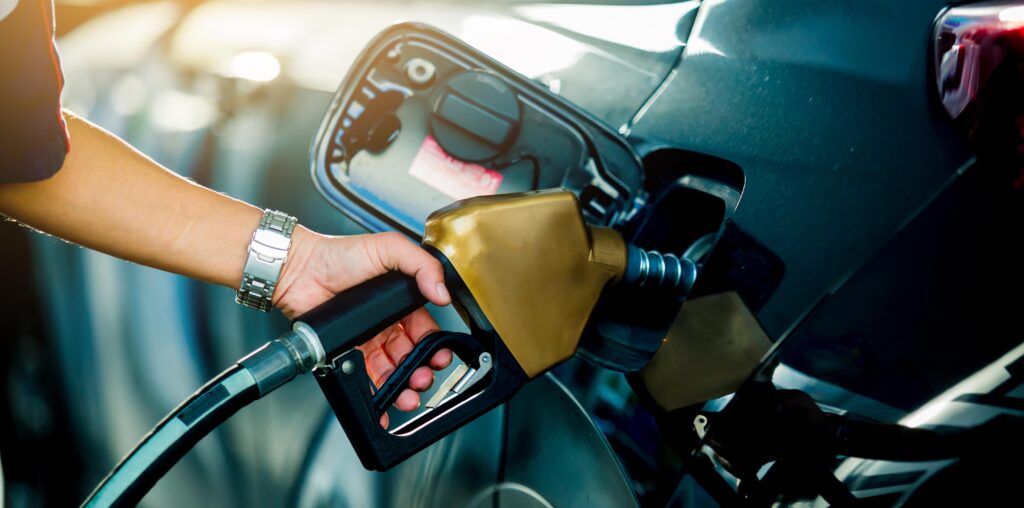When planning your travel in the UAE, one of the smartest ways to get around comfortably and efficiently is to Rent a Car in Dubai. From cruising down Sheikh Zayed Road to exploring the vast desert or enjoying a road trip to Abu Dhabi, having your own car is often more convenient than using public transportation. However, while renting a car offers many benefits, one aspect that often confuses travelers is the fuel policy, and understanding it can save you both time and money.
Whether you’re visiting for business, leisure, or a long stay, knowing the different fuel policies that rental companies follow will help you avoid unexpected charges and make better travel decisions. This blog explores everything you need to know about fuel policies when renting a car in Dubai — from the types of policies to common practices and tips for cost-efficient refueling.
Why Fuel Policy Matters
Fuel policy is one of the most important elements in a car rental agreement. It determines how much fuel the vehicle will have when you pick it up and how much is expected to be in the tank when you return it. Ignoring this part of the contract or misunderstanding it could lead to unexpected fees or penalties.
Dubai is known for its affordable fuel prices compared to other countries, which is good news for travelers. However, rental companies may have different strategies in place to capitalize on fuel charges. By being informed, you can make sure you’re not overpaying and can plan your trip accordingly.
Common Fuel Policies in Dubai Car Rentals
Here are the most commonly used fuel policies in Dubai’s car rental industry. Understanding the pros and cons of each will help you make a smart choice.
1. Full to Full
This is the most straightforward and often the most cost-effective policy. You receive the car with a full tank of fuel and are expected to return it with the tank full as well.
Pros:
- You only pay for the fuel you use.
- You can choose where to fill up, potentially saving money.
Cons:
- You must remember to refuel before returning the car.
- If you return it slightly under full, you may be charged a premium.
Tip: Always keep the fuel receipt to prove you refueled right before returning the car.
2. Full to Empty
With this policy, you receive a full tank and return the car as empty as possible. You pay upfront for a full tank when picking up the vehicle.
Pros:
- No need to find a gas station before drop-off.
- Convenient if you’re in a rush.
Cons:
- You might not use all the fuel you paid for.
- The rental company may charge more per liter than at a regular fuel station.
This policy often benefits the rental agency more than the customer, especially for short-term rentals.
3. Same to Same
This means you receive the car with a specific amount of fuel (not necessarily full), and you’re expected to return it with the same level.
Pros:
- It’s easier than filling the tank to full.
- You only need to match the fuel level provided.
Cons:
- It can be tricky to estimate exact fuel levels.
- Disputes may arise if the rental agency claims the tank is short.
Always take a photo of the fuel gauge at pickup to avoid disagreements.
4. Pre-Purchase with Refund
Some companies allow you to pre-purchase a full tank but offer to refund the cost of any unused fuel when you return the vehicle.
Pros:
- A more flexible version of the full-to-empty policy.
- You might get money back for unused fuel.
Cons:
- Not all companies refund the full amount.
- Requires attention to details in the contract.
How to Handle Refueling Smartly
Dubai has a well-developed fuel station network, making refueling simple. Most stations are operated by ENOC, EPPCO, or ADNOC, and many offer both self-service and full-service options.
Here are some tips to refuel smartly:
Know Your Fuel Type
Make sure you know whether your rental car uses petrol or diesel. This information is usually mentioned in the rental agreement or inside the fuel door. Using the wrong type of fuel can damage the engine and lead to costly repairs — and you’ll be responsible.
Use Google Maps or Waze
Finding a fuel station near your return location is essential if you’re under a full-to-full policy. Apps like Google Maps and Waze can guide you to the nearest fuel station, so you don’t waste time driving around.
Avoid Last-Minute Fill-Ups at Airports
Airport fuel stations may charge slightly higher prices and could have longer queues. If you’re dropping off your car at the airport, consider refueling a few kilometers before the airport to avoid paying a premium.
Keep Receipts
Always retain your fuel receipts, especially for full-to-full or same-to-same policies. These serve as proof in case the rental agency questions the fuel level upon return.
Fuel Prices in Dubai: What to Expect
As of 2025, fuel prices in the UAE remain relatively low compared to global standards. Petrol prices usually range between AED 2.8 and AED 3.3 per liter depending on the type and global oil market fluctuations. Diesel is slightly more expensive but is still affordable.
Dubai’s low fuel prices are one of the reasons many travelers prefer to Rent a Car in Dubai, especially for long distances or multiple destinations. Even luxury vehicles and SUVs remain economical when it comes to fuel consumption.
Watch Out for Hidden Charges
Some rental companies may try to make extra profit through unclear fuel policies or inflated fuel charges. Here are a few red flags to watch for:
- Administrative fees for refueling, often hidden in the fine print.
- Higher per-liter charges if you return the car under the expected fuel level.
- Unexplained fuel surcharges — always ask for a breakdown.
Make sure to read the rental agreement carefully and clarify anything you’re unsure about before signing.
Recommended Practices for Tourists
- Choose full-to-full policy whenever possible. It’s usually the most transparent and budget-friendly.
- Document the fuel level at pickup and return using your phone camera.
- Use a reliable rental company with clear terms and positive reviews.
- Don’t overpay for prepaid fuel if you’re planning only short trips within the city.
- Ask questions at the counter — don’t hesitate to clarify fuel types, nearest stations, or return procedures.
Conclusion
Fuel policy may seem like a minor detail when planning your car rental, but it can significantly affect your overall experience and cost. By taking the time to understand the different types of fuel policies and how they work, you’ll avoid unnecessary fees and ensure a smoother rental process.
Dubai’s vast road network, efficient fueling stations, and low fuel costs make it an ideal city to explore by car. So, when you Rent a Car in Dubai, do so with full knowledge of your fuel obligations — and enjoy the freedom of traveling on your own terms.




